Guidelines for Creating Educational Continuity During Prolonged Crisis Situations: Insights from the ‘ Education during crisis’ Forum
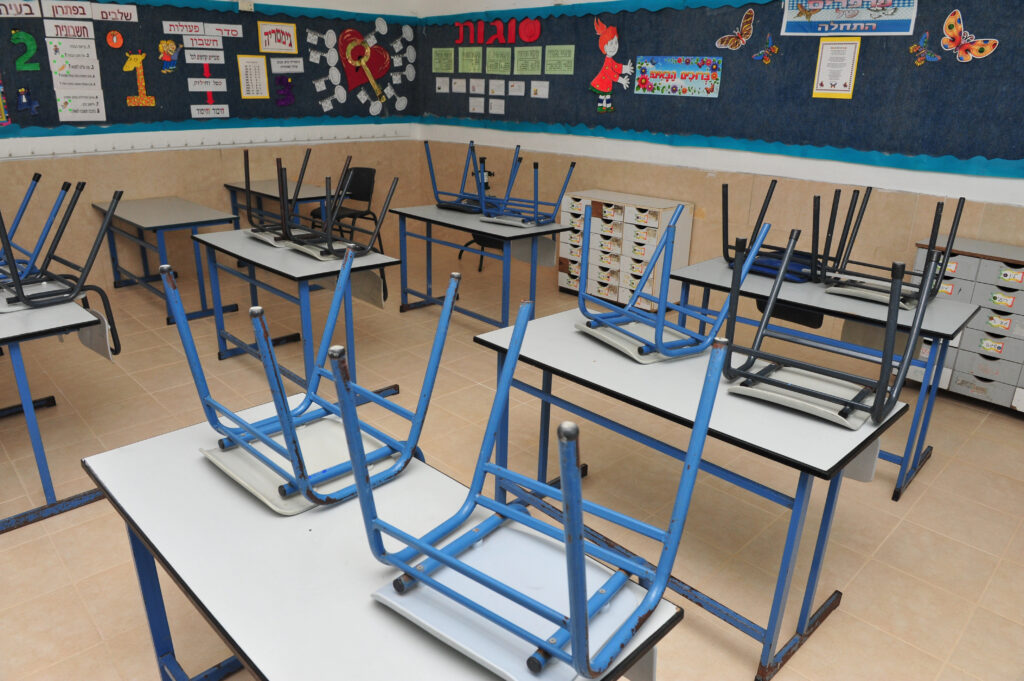
The presented analysis and recommendations aim to ensure uninterrupted educational routine for all Israeli pupils, with a specific focus on those evacuated. This report was written following the Iron Swords War eruption on October 7, 2023 for about three months (from November 12, 2023, to January 28, 2024). This war and the crisis that followed it, posed the education system with multifaceted and complex challenges previously unencountered, but will most probably will face in future crisis situations, such as earthquake events in Israel.
Startup Companies in Times of Crisis – Insights

In 2023, the Israeli high-tech sector faced a crisis in investment due to legal changes, a global economic downturn, and later, the impact of the Iron Sword conflict. The United States and Europe also experienced a decline in high-tech investments during this year, although at much lower rates than in Israel. Consequently, at the beginning […]
Democracy as a Critical Infrastructure during a State of Emergency
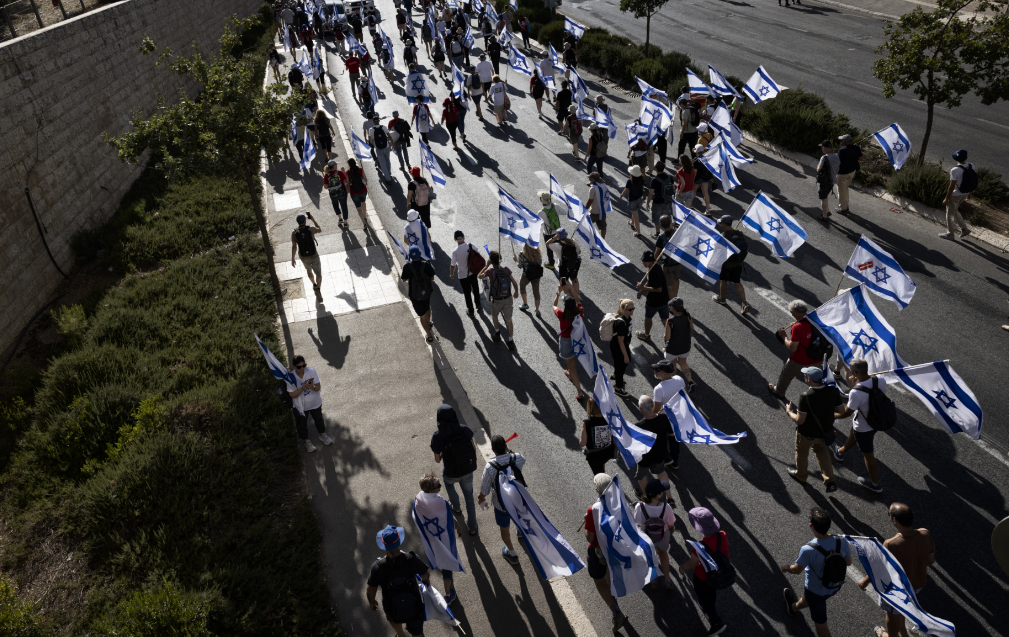
Democracy is not only an essential infrastructure during normal times; in fact, safeguarding it becomes even more crucial during times of emergency. This document explores the intricate relationships between democracy, individual rights and emergencies. The authors acknowledge that acute crises, like natural disasters, pandemics or wars, may warrant deviations from both the formal facet of […]
Assessment of Methane Emissions from Natural Gas Supply Chain in Israel

Methane gas, the main component of natural gas, is the second most impactful greenhouse gas on global greenhouse gas emissions from anthropogenic sources, after carbon dioxide, and is currently the focus of efforts (along with other short-lived greenhouse gases) to reduce global warming of the atmosphere. Methane, as a contributor to the greenhouse effect, is […]
Past initiatives to strengthen the Israeli society: Lessons from the Past
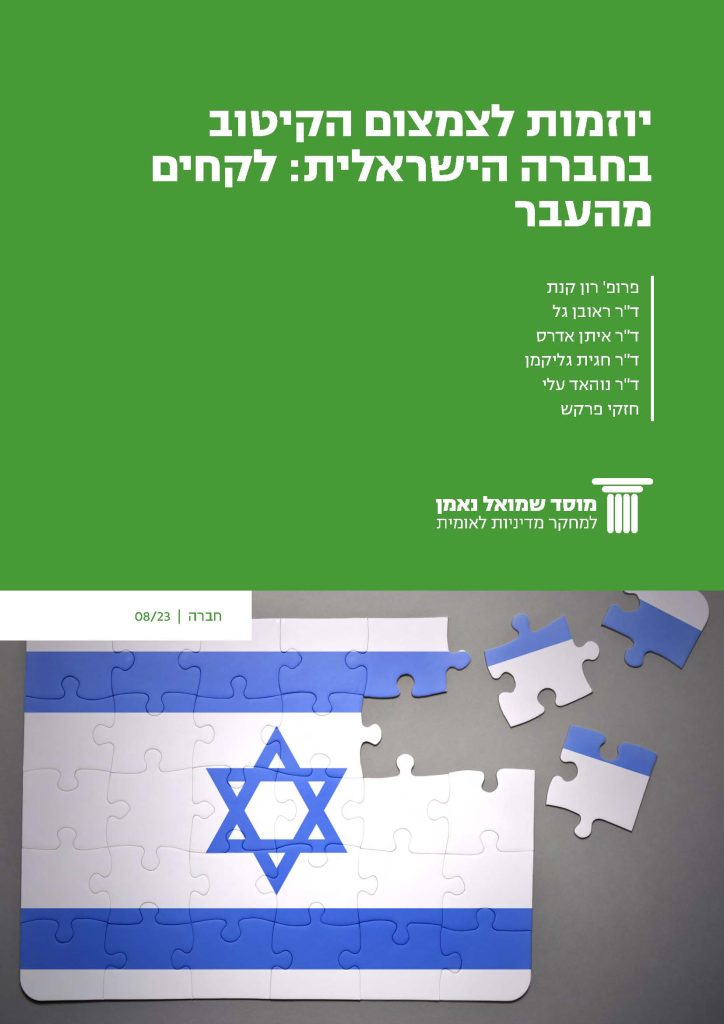
Israel is in the midst of a multidimensional crisis combining legislative initiatives, policy changes and public upheaval. This led to long lasting protests that exposed the fragmentation of the Israeli society. The Samuel Neaman Institute has addressed issues related to the Israeli society since 2005, including a unifying definition of societal resilience (Gal, Padan, 2020). […]
The waste management crisis – A national project. Summary and recommendations The waste forum of Samuel Neaman Institute
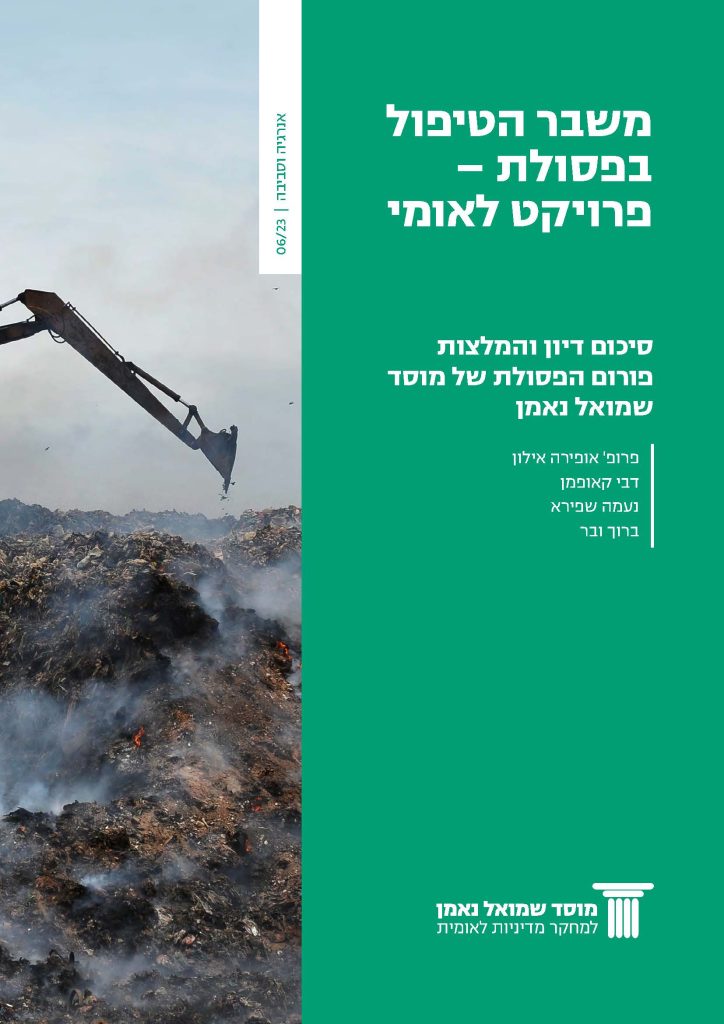
In recent years, the State of Israel has reached a serious waste crisis. Already in the State Comptroller’s reports published in 2021 and 2022, and in the Israeli PRTR (mandatory reporting on emissions) published in recent years, it was possible to identify a problem due to the emission of carcinogenic substances and greenhouse gases – […]
Review and Analysis of Methods for Evaluating, Quantifying and Promoting Shade in Urban Spaces
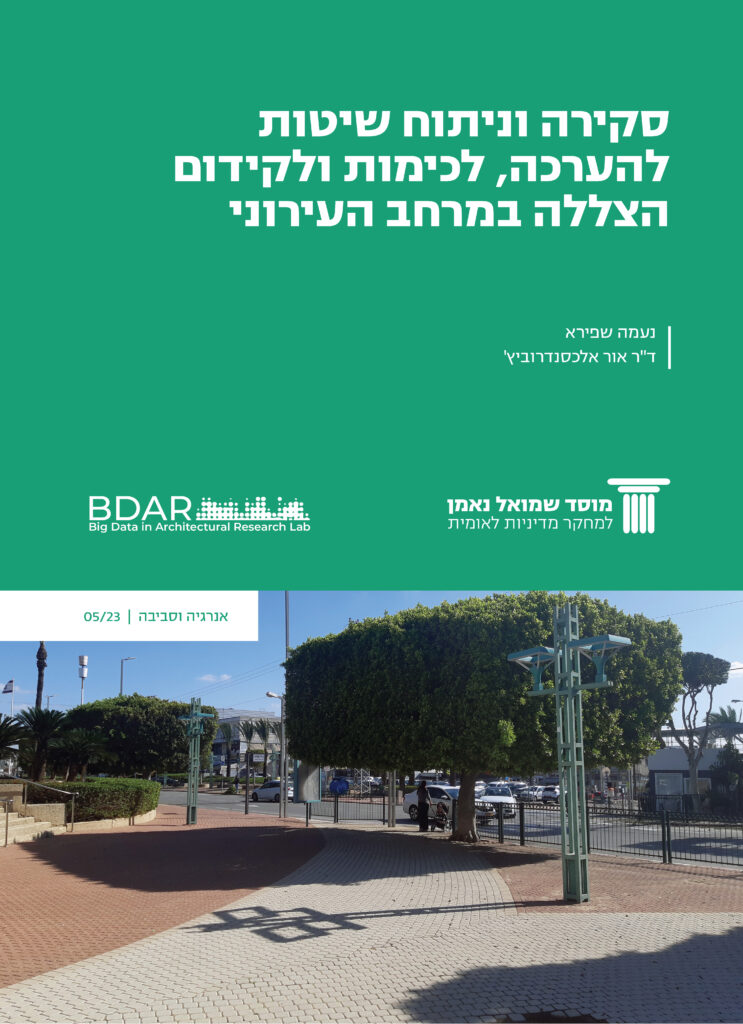
Promoting street shade using trees, as a key component of Israel’s global warming adaptation strategy, lies at the heart of Government Resolution 1022 from January 23, 2022. However, the National Strategic Plan for Shading and Cooling Urban Spaces Using Trees, published following the resolution at the end of 2022, already acknowledged the methodological difficulties inherent […]
Energy Forum 53: Green Building in Israel
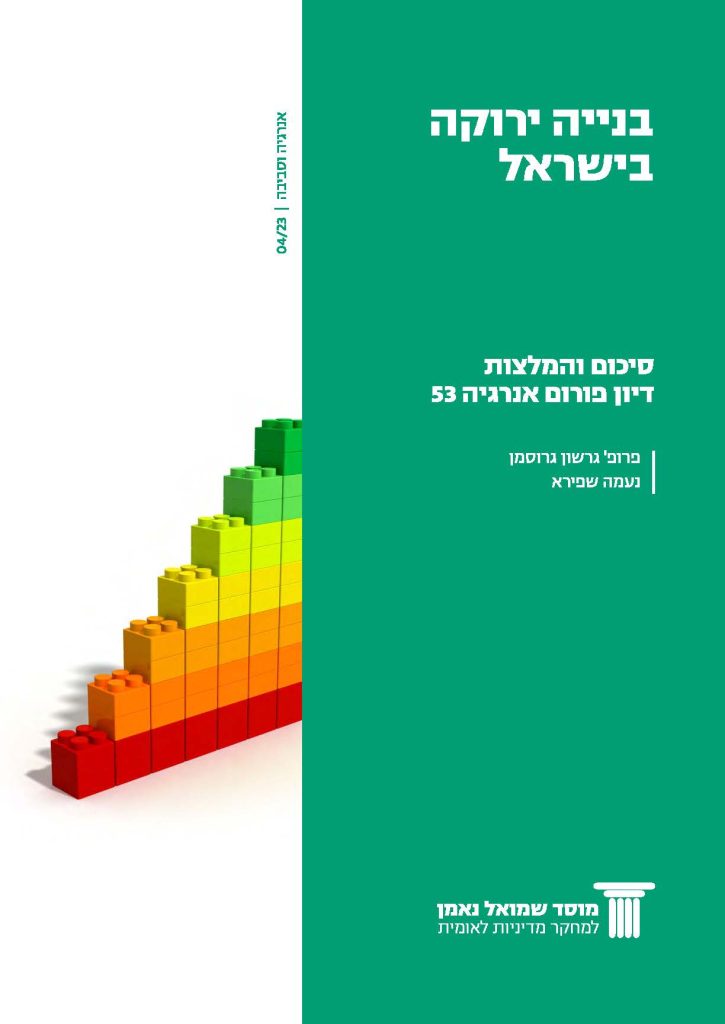
Green building, or sustainable building, is a multidisciplinary approach that seeks to use environmentally responsible and resource-efficient processes throughout the entire life cycle of the building, from choosing its location to the stages of planning, construction, operation, maintenance, renovation, and demolition. The Green Building Standard in Israel – Israeli Standard (SI) 5281 – was written […]
A retrospective on the national policy for municipal solid waste management in Israel 2007-2022
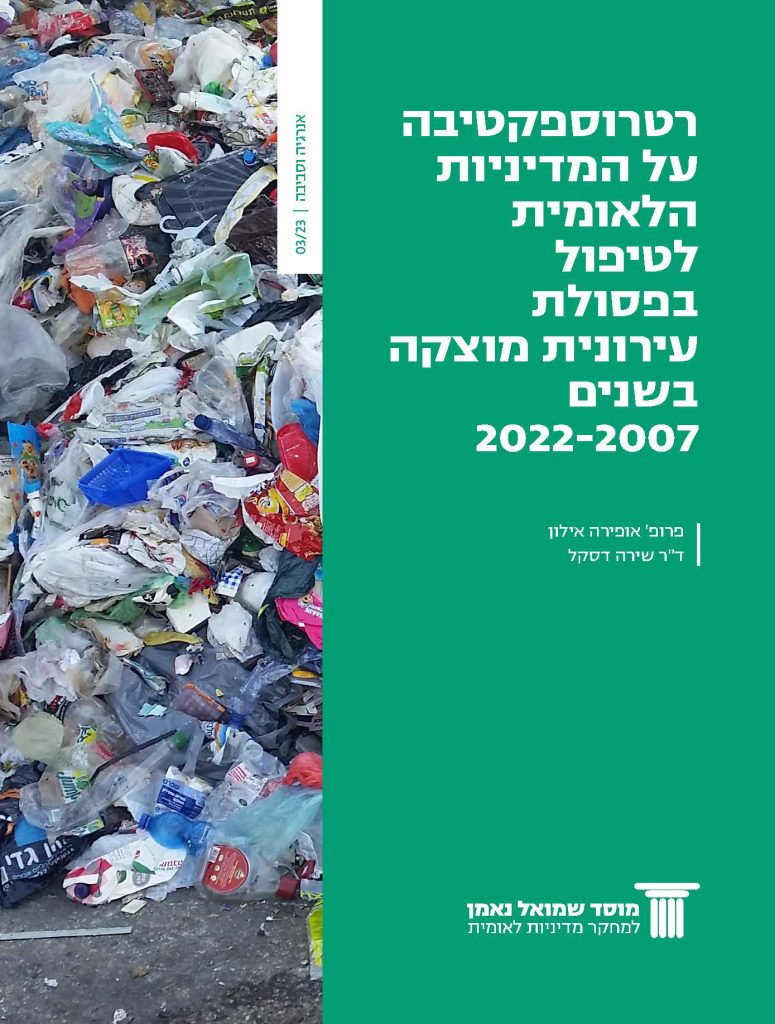
In Israel, approximately 6 million tons of municipal solid waste are produced each year, which includes household waste, bulky waste, and commercial waste (hereinafter: “waste”). The regulator in the field is the Ministry of Environmental Protection (hereinafter: “the Ministry”), while the local authorities are responsible for the collection and disposal of the waste and bear […]
Energy Forum 52: A Nuclear Power Plant in Israel
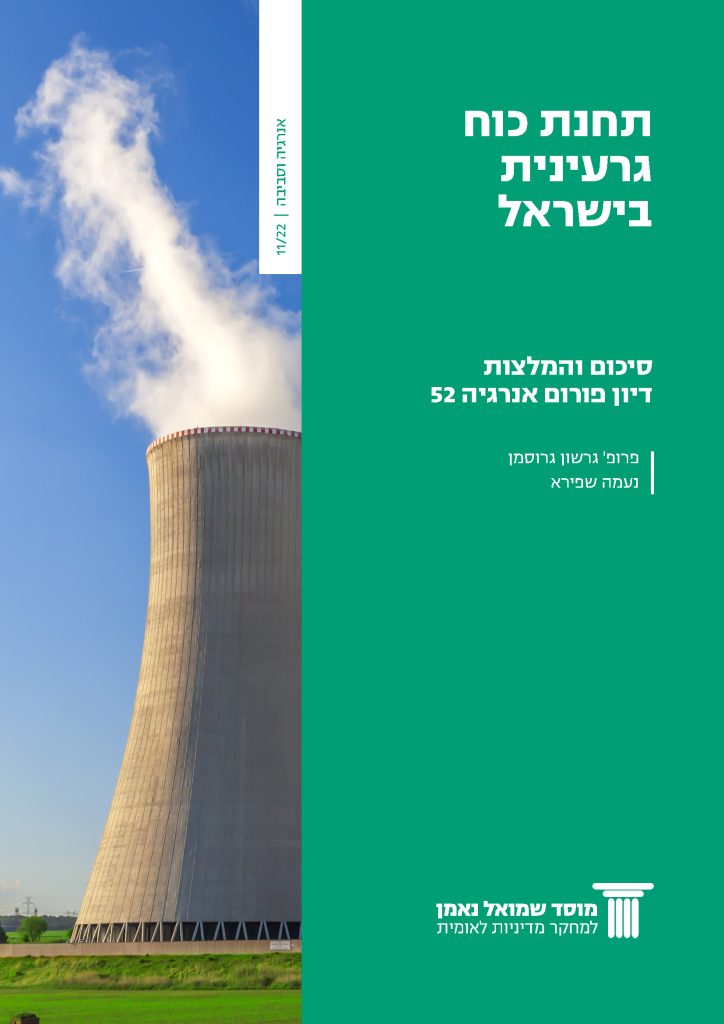
Building a nuclear power plant has been on the agenda of the energy sector in Israel since the 1970s. As part of the decision to diversify the country’s fuel mix, following the energy crisis of the October 1973 War and the oil embargo imposed on Israel and its allies, the possibility of establishing a nuclear […]
